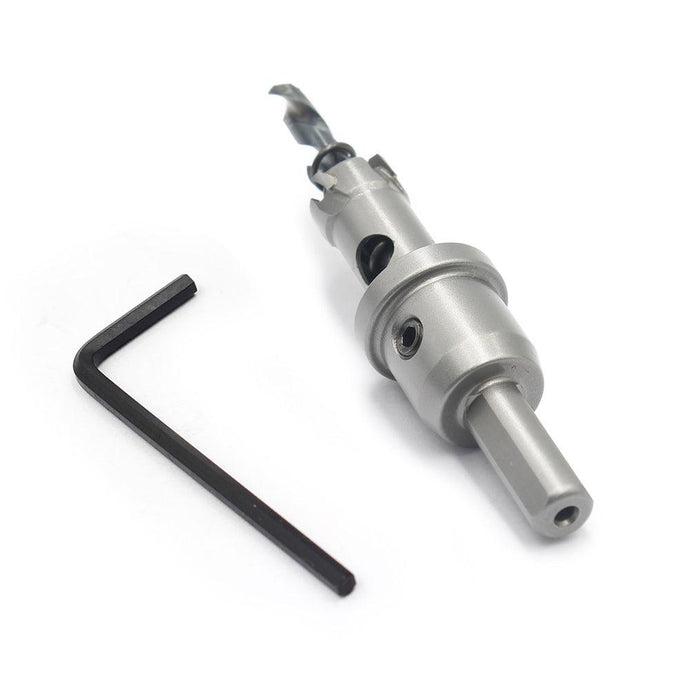The Power of Precision: Unpacking the Advantages of Hole Saws
In the world of construction, woodworking, and various DIY projects, hole saws stand out as invaluable tools that offer a host of advantages. Designed specifically for cutting circular holes in a range of materials, these tools have become essential for both professionals and hobbyists alike. Understanding the benefits of using a hole saw can illuminate why they are favored in various applications, making them a critical addition to any toolkit.
One of the most significant advantages of hole saws is their ability to create clean, precise holes with minimal effort. The design of a hole saw, featuring serrated edges, allows for smooth cutting through materials like wood, plastic, and metal. This precision is particularly important in applications where aesthetics matter, such as in furniture making or interior construction. A clean hole not only enhances the overall appearance of a project but also reduces the need for additional finishing work, saving time and effort in the long run.
Efficiency is another key advantage of hole saws. These tools can quickly cut through materials, making them ideal for projects that require multiple holes to be drilled. For instance, when installing electrical outlets or plumbing fixtures, a hole saw can speed up the process significantly compared to using traditional drill bits. This efficiency translates to increased productivity, allowing contractors and DIY enthusiasts to complete their tasks in a timely manner. The ability to work quickly without sacrificing quality makes hole saws an indispensable tool in many settings.
Versatility is also a hallmark of hole saws. Available in various sizes and designs, they can be used to cut holes for a wide range of applications. From creating openings for dowels and hinges in woodworking to making larger holes for pipes or ventilation systems in construction, hole saws adapt easily to different tasks. This versatility means that a single set of hole saws can cover numerous needs, reducing the need for multiple specialized tools and simplifying the toolkit.
Additionally, hole saws are generally easy to use, making them accessible for both experienced professionals and beginners. They attach seamlessly to standard drills, requiring minimal setup and allowing users to switch between different sizes with ease. This user-friendly design encourages experimentation and creativity, enabling DIY enthusiasts to tackle projects they may have otherwise avoided. The straightforward nature of hole saws empowers users to take on a wide variety of tasks, enhancing their skill sets and expanding their project horizons.
Another significant advantage of hole saws is their ability to cut through thicker materials. While traditional drill bits may struggle with density and thickness, hole saws excel in this regard. Their robust construction and serrated edges allow them to penetrate materials such as hardwood, plywood, and even some metals. This capability makes them invaluable for contractors who work in construction or manufacturing, where precision and the ability to handle tough materials are paramount.
Safety is an essential consideration in any tool's design, and hole saws offer a relatively safe cutting method when used correctly. Unlike traditional drilling, which can cause splintering or kickback, hole saws tend to produce smoother cuts, minimizing the risk of accidents. By following proper safety protocols and using the tool as intended, users can achieve effective results while reducing the likelihood of injury.
Cost-effectiveness is another advantage that makes hole saws appealing. While the initial investment in a good-quality set of hole saws may be higher than that of standard drill bits, their durability and longevity often result in long-term savings. Hole saws are designed to withstand considerable use, and many can be sharpened or have replaceable parts, extending their lifespan. This durability means that, with proper care, a set of hole saws can serve a user for years, making them a wise investment.
Furthermore, advancements in technology have led to the development of specialized hole saws, such as bi-metal and carbide-tipped options. These innovations enhance cutting performance, allowing users to tackle even the most challenging materials with ease. Bi-metal hole saws, for instance, combine flexibility and strength, making them perfect for cutting through tougher metals. This continued evolution in hole saw technology ensures that users have access to tools that meet the demands of modern projects.
In summary, the advantages of hole saws are numerous and compelling. From their ability to create clean, precise holes and their efficiency in cutting through various materials to their versatility and user-friendliness, hole saws are essential tools for anyone involved in construction, woodworking, or DIY projects. Their capacity to handle thicker materials, coupled with their safety features and long-term cost-effectiveness, further solidifies their place as a favored choice among professionals and enthusiasts alike. As the demand for precision and quality continues to grow in various industries, hole saws will undoubtedly remain a cornerstone in the toolkit of those who value craftsmanship and efficiency.







